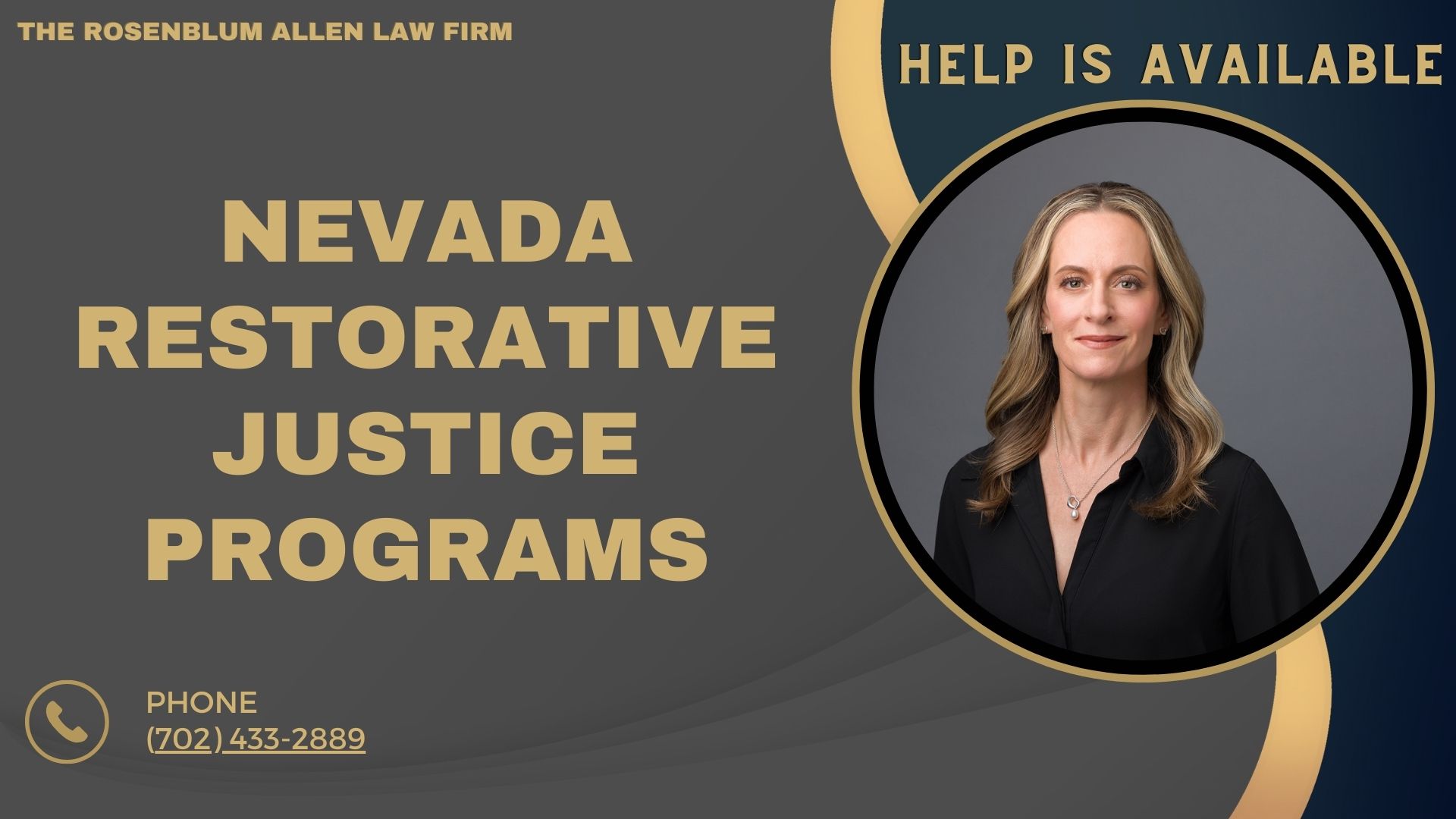Restorative justice is an alternative approach to the traditional criminal justice system. Instead of focusing solely on punishing offenders, restorative justice aims to repair the harm caused by criminal actions. It involves a collaborative process where offenders, victims, and the community come together to discuss the impact of the crime and find ways to make things right.
In restorative justice, the key goals are:
- Healing for Victims: Helping victims address the emotional and psychological impact of the crime.
- Accountability for Offenders: Encouraging offenders to take responsibility for their actions and make amends.
Unlike the conventional punitive system, restorative justice creates a path toward healing for everyone involved, fostering understanding and forgiveness.
Goals: Healing for Victims, Accountability for Offenders
Restorative justice is centered around two main objectives:
Healing for Victims: The emotional pain caused by crime can be devastating. Restorative justice allows victims to be heard, express their feelings, and ask for restitution or other forms of remedy. Victims may experience a sense of closure and empowerment by engaging in dialogue with offenders.
Accountability for Offenders: Restorative justice emphasizes that offenders should take responsibility for their actions. Through face-to-face meetings, offenders can better understand the impact of their crime and acknowledge their wrongdoing. This process is crucial in preventing future offenses and fostering personal growth.
How Restorative Justice Works
Victim–Offender Mediation and Community Involvement
Restorative justice programs typically involve victim-offender mediation, where victims and offenders meet in a structured, safe environment. These sessions allow both parties to share their perspectives and discuss the crime’s emotional and practical effects.
Mediators, often trained professionals, facilitate these meetings, ensuring they remain respectful and productive. Victims can express their pain, ask for restitution, or seek answers, while offenders have the opportunity to acknowledge their actions and apologize.
Beyond victim-offender mediation, restorative justice often involves community involvement. Community members, including family members, friends, and other stakeholders, may be part of the conversation. This broader involvement ensures the solution is rooted in community healing and support.
Emphasis on Restitution and Personal Growth
Restitution is a core element of restorative justice, which is making amends for the harm caused by the crime. Depending on the nature of the crime and the agreement between the victim and the offender, this can include financial compensation, community service, or other restorative actions.
In addition to restitution, restorative justice emphasizes the personal growth of offenders. Rather than simply serving time or paying fines, offenders are encouraged to engage in self-reflection, take responsibility for their actions, and undergo rehabilitation. This process helps break the cycle of reoffending and promotes long-term change in offenders’ lives.

Nevada’s Approach to Restorative Justice
Existing Statutes or Pilot Programs
In Nevada, restorative justice is still evolving but has made significant strides recently. The state has begun implementing pilot programs to integrate restorative justice principles into its criminal justice system.
These programs are designed to provide an alternative to traditional sentencing, focusing on rehabilitation and community reintegration. Some pilot programs may target specific offenses, such as non-violent crimes, and involve both victim-offender mediation and community-based initiatives.
Eligibility for Participation
Not every offender is eligible for restorative justice. In Nevada, eligibility typically depends on the nature of the crime, the willingness of the victim and the offender to participate, and the court’s discretion.
- Non-Violent Offenses: Restorative justice is often used for non-violent offenses such as theft, property damage, or drug-related crimes. These types of crimes lend themselves to reconciliation and repair.
- Limited Violent Offenses: In some cases, restorative justice may be considered for offenders convicted of lower-level violent crimes. However, cases involving serious violence or harm may not be eligible, especially if the victim is unwilling to participate in the process.
Types of Cases Considered
Non-Violent Offenses vs. Limited Violent Offenses
Restorative justice programs are most commonly applied to non-violent offenses. These crimes are typically less severe and do not significantly threaten public safety. Some examples of non-violent crimes that may be considered for restorative justice include:
- Theft: Shoplifting, burglary, or petty theft.
- Drug Possession: Low-level drug offenses.
- Property Damage: Vandalism or damage to personal property.
The primary goal in these cases is to help offenders understand the consequences of their actions and repair the harm caused. Restorative justice allows offenders to make amends without resorting to lengthy prison sentences by focusing on rehabilitation.
However, limited violent offenses may also be eligible for restorative justice, depending on the specific circumstances. These are cases where the crime involved violence, but it was less severe or occurred in a context that makes reconciliation possible. Examples of limited violent offenses might include:
- Assault: Minor physical altercations or fights.
- Domestic Violence: In certain situations, if both parties agree, restorative justice can be used to address underlying issues and prevent further violence.
Restorative justice in these cases requires careful consideration to ensure that the victim feels safe and that the offender is genuinely committed to change.
Balancing Public Safety with Rehabilitation
Restorative justice is a promising tool for rehabilitation, but it must always be balanced with public safety. Not every offender is suitable for a restorative justice process. Violent criminals or individuals who pose a significant threat to society may not be eligible for these programs.
Restorative justice aims to create a safer community by focusing on the root causes of crime and addressing them through healing and accountability. However, it must be applied carefully to avoid situations where offenders may exploit the process for their benefit without changing their behavior.
Factors that influence whether a case is suitable for restorative justice include:
- Severity of the Crime: Serious violent crimes typically are excluded.
- Victim’s Willingness: The victim must be open to the process.
- Offender’s Readiness: The offender must be ready to take responsibility and make amends.
The key is maintaining public safety while allowing offenders to rehabilitate and reintegrate into society.

Benefits and Criticisms
Lower Recidivism Rates?
One of the most significant benefits of restorative justice is its potential to reduce recidivism or the likelihood of offenders committing crimes again. Traditional incarceration often focuses on punishment, which doesn’t address the underlying issues that lead to criminal behavior. Restorative justice, on the other hand, promotes:
- Self-Reflection: Offenders are encouraged to think about their actions and how they affect others, which can lead to personal growth.
- Community Reintegration: Instead of isolating offenders in prison, restorative justice helps them rebuild relationships with the community.
- Accountability: Offenders participating in restorative justice are more likely to take responsibility for their actions and make amends.
Research suggests that offenders are less likely to reoffend when they are given a chance to make things right through restorative processes. This makes restorative justice a promising tool for reducing crime and building safer communities.
Concerns About Consistency and Fairness
While restorative justice offers many potential benefits, concerns about its consistency and fairness exist. Critics argue that the process can sometimes be unpredictable, and its outcomes might not always be equitable for both victims and offenders. Some specific concerns include:
- Inconsistent Application: Not all cases are eligible for restorative justice, and the process may not be applied equally across different offenders or regions.
- Victim’s Rights: There is concern that victims may feel pressured to forgive offenders or agree to restitution, even if they are not ready to do so.
- Potential for Unequal Outcomes: Offenders may not always be held to the same standards in restorative justice processes as traditional sentencing, potentially leading to leniency in some cases.
Ensuring fairness and consistency requires well-defined guidelines and oversight. The process must be transparent and ensure that victims and offenders are treated respectfully.
Navigating the Process
Role of Defense Attorneys in Advocating for Restorative Justice
In Nevada, defense attorneys are crucial in helping offenders navigate the restorative justice process. Attorneys can advocate for their clients to participate in restorative justice programs, ensuring they understand the benefits and responsibilities involved. They help:
- Ensure Informed Consent: Offenders must fully understand the process and their role in it before agreeing to participate.
- Advocate for Fairness: Attorneys can help protect the offender’s rights throughout the restorative justice process.
- Prepare Offenders: Attorneys may provide guidance to help offenders prepare for meetings with victims and work on personal growth.
In some cases, attorneys may help negotiate terms of restitution or community service, ensuring that the agreed-upon actions are realistic and fair.
Potential Sentencing Outcomes
Restorative justice can lead to reduced sentences or even alternative forms of sentencing. For example, if an offender successfully participates in restorative justice, they may receive:
- Reduced Jail Time: In some cases, offenders who engage in restorative justice programs can have their sentences shortened or substituted with community service or restitution.
- Probation: Instead of incarceration, offenders may be placed on probation with conditions that include completing restorative justice programs.
- Dismissal of Charges: In rare cases, if an offender completes the process and makes amends, charges may be reduced or dismissed.
These outcomes depend on the case’s specific circumstances, including the nature of the crime, the offender’s willingness to change, and the victim’s perspective.

Breaking It All Down
Restorative justice is an approach that continues to grow in Nevada. As the state explores alternatives to traditional sentencing, restorative justice is becoming a more critical tool for promoting healing and reducing recidivism.
There is potential for restorative justice programs to expand, helping more offenders and victims alike. In the future, we may see:
- Wider Adoption of Restorative Practices: More communities and courts are adopting restorative justice programs as a key part of the legal system.
- Increased Funding and Resources: With proven benefits, Nevada may allocate more resources toward restorative justice initiatives.
- Broader Eligibility: Over time, restorative justice may be available to a wider range of offenses, including certain violent crimes, depending on the case’s specifics.
Restorative justice could become a cornerstone of Nevada’s criminal justice system, helping to break cycles of crime and offering a more compassionate alternative to punitive measures.
Why It’s Important to Explore Alternatives to Incarceration
The traditional prison system has many limitations. It can be expensive, overcrowded, and often fails to rehabilitate offenders. This is why exploring alternatives to incarceration, like restorative justice, is so important.
By focusing on rehabilitation, accountability, and healing, restorative justice offers several benefits:
- Reduced Recidivism: Offenders who participate in restorative justice are less likely to re-offend than those who serve prison time.
- Cost Savings: Restorative justice programs often cost less than incarceration, providing a more affordable solution to crime prevention.
- Stronger Communities: These programs help offenders reintegrate into society, repairing relationships within families and communities.
Ultimately, alternatives to incarceration, like restorative justice, can lead to a more balanced, effective justice system. By prioritizing healing over punishment, Nevada can offer better outcomes for victims, offenders, and society.

Frequently Asked Questions
What are the key principles of restorative justice?
Restorative justice focuses on healing the harm caused by crime, promoting accountability for offenders, and offering a chance for personal growth. It centers around a collaborative process where victims and offenders communicate directly, and offenders take responsibility for their actions. The goal is to restore relationships and foster community involvement.
Can restorative justice be used for all crimes?
No, restorative justice is generally reserved for non-violent or limited violent offenses. Eligibility for participation depends on factors such as the nature of the crime, the willingness of both the victim and offender to engage, and the court’s approval.
How does victim-offender mediation work?
Victim-offender mediation involves a structured meeting in which the victim and offender share their feelings, experiences, and the impact of the crime. A trained mediator facilitates the process to ensure that it remains respectful and productive. The goal is to allow the victim to express their needs and for the offender to take responsibility for their actions.
What types of restitution are required in restorative justice?
Restitution can take various forms depending on the nature of the offense and what is agreed upon during the restorative process. Common types of restitution include:
- Financial Compensation: Paying for damage or losses caused by the crime.
- Community Service: Offenders may be asked to give back to the community by performing community service.
- Apology or Reconciliation: Offenders may be required to issue a formal apology or participate in reconciliation efforts.
Who decides if an offender is eligible for restorative justice?
Eligibility for restorative justice is usually determined by the court in consultation with the victim, offender, and any relevant parties, such as defense attorneys. The seriousness of the offense, the offender’s willingness to participate, and the victim’s consent are all considered.
How can defense attorneys help in the restorative justice process?
Defense attorneys play a crucial role in advocating for their clients’ participation in restorative justice. They help offenders understand the process, ensure they are informed and consenting, and prepare them for meetings with victims. Attorneys also ensure that the rights of offenders are protected during the restorative justice process.
Is restorative justice available for offenders with a history of violence?
While restorative justice is primarily focused on non-violent crimes, limited violent offenses may be considered for the process, depending on the circumstances. However, cases involving serious violence are typically excluded, as restorative justice is designed to focus on healing rather than punishment for severe crimes.
What happens if an offender completes restorative justice?
If an offender successfully participates in restorative justice, the outcomes may vary. In some cases, they could receive reduced sentences, alternative forms of sentencing like probation, or even a dismissal of charges. Successful participation in the program may also reduce the likelihood of reoffending.
Does restorative justice have a higher success rate than traditional sentencing?
Restorative justice has been shown to have lower recidivism rates compared to traditional sentencing. By focusing on rehabilitation, accountability, and personal growth, offenders are more likely to reintegrate into society successfully and avoid repeating criminal behavior.
Can victims choose whether to participate in restorative justice?
Yes, participation in restorative justice is voluntary for both the victim and the offender. The victim must feel comfortable and safe engaging in the process. If the victim does not wish to participate, restorative justice cannot proceed.
How is the safety of victims ensured during the restorative justice process?
Victim safety is a top priority in restorative justice. The process is facilitated by trained professionals who create a safe and supportive environment. If necessary, special measures are taken to ensure that victims are comfortable, such as separate meetings or additional support during mediation sessions.

Additional Resources for You from The Rosenblum Allen Law Firm.
If you’re dealing with legal issues or seeking guidance, here are some resources from The Rosenblum Allen Law Firm that may be helpful. Each link includes a brief description of the service provided:
-
Criminal Defense Attorney
Need help with criminal charges? Our experienced attorneys are here to defend your rights and build a strong case on your behalf. -
Las Vegas DUI Lawyer
Facing a DUI charge in Las Vegas? Learn how we can help minimize penalties and protect your driving privileges. -
Domestic Violence Lawyer Las Vegas
If you’re facing domestic violence accusations, we offer compassionate and skilled representation tailored to your case. -
Drug Possession Lawyer
Charged with drug possession? Let us help you navigate the complexities of Nevada’s drug laws and protect your future. -
Sex Crimes Attorney
Accused of a sex crime? Our team provides sensitive and assertive defense to help safeguard your reputation and rights. -
CPS Defense Attorney
If you’re dealing with child abuse or neglect accusations, we’ll work tirelessly to protect your parental rights and your family. -
Misdemeanor Lawyer
Misdemeanor charges can still have serious consequences. Learn how we can help you minimize the impact. -
Las Vegas Warrant Defense Attorney
Got an active warrant in Las Vegas? We’ll help you address it and explore ways to resolve the situation favorably. -
Las Vegas Probation Violation Attorney
Violating probation can lead to harsh consequences. Let us help you navigate the legal process and protect your freedom. -
Theft Crime Defense Lawyer
Facing theft charges? Our attorneys are skilled at crafting defenses tailored to your situation to help achieve the best possible outcome. -
Kidnapping Lawyers
Accused of kidnapping? We provide strong representation to ensure your side of the story is heard. -
Juvenile Defense Lawyers
If your child is facing legal trouble, our juvenile defense attorneys are experienced in protecting minors’ rights and futures. -
Firearms Lawyer Las Vegas
Firearm-related legal matters can be complex. Whether it’s possession, use, or compliance issues, we’re here to help.

Offsite Resources for You
Everytown for Gun Safety
A leading organization dedicated to reducing gun violence through advocacy, research, and education.
Giffords Law Center
Provides expert resources on firearm laws and policies across the United States, including red flag laws.
National Alliance on Mental Illness (NAMI)
Offers support and information on mental health, including how it intersects with legal systems and gun safety.
American Bar Association (ABA)
A trusted source for information on legal rights, processes, and navigating complex legal systems.
Violence Policy Center
Focuses on preventing gun violence and provides detailed reports on firearms and public safety issues.
Safe States Alliance
A public health organization promoting strategies to prevent violence and enhance community safety.
Brady Campaign to Prevent Gun Violence
Dedicated to ending gun violence and offering resources on legislation and public safety initiatives.

A Special Message from Our Lead Attorney, Molly Rosenblum Allen, Esq

Thank you for taking the time to read through our resources. We hope you found the information helpful as you explore your options. If you’re ready to move forward or have any questions, don’t hesitate to reach out to me and my team at (702) 433-2889. We’re here to help you navigate your situation and get the ball rolling. We look forward to hearing from you!
Best regards,
Molly and the team at The Rosenblum Allen Law Firm






